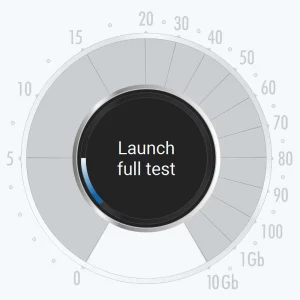Sponsored Links
Ofcom Spectrum Sale & Rural Broadband Benefits Criticised
Posted: 06th Mar, 2008 By: MarkJ
The European Broadcasting Union (EBU) has criticised Ofcom's recent sale of spare UHF radio spectrum, which among other things, is expected to be used for delivery of wireless broadband services to remote/rural areas.
However, a study published by Oliver & Ohlbaum Associates Ltd and DotEcon Ltd suggests that the strength of Europes broadcasting and content creation industry could be damaged:
Ofcom is unlikely to do a U-Turn now that the licenses have been issued for its first auction, although the study does raise some legitimate concerns about just how effective such spectrum is likely to be:
However, a study published by Oliver & Ohlbaum Associates Ltd and DotEcon Ltd suggests that the strength of Europes broadcasting and content creation industry could be damaged:
The truth about the "mobile myth" is revealed in the study which demonstrates that, the value created by using UHF spectrum for non-broadcast services, would be modest, and that the economic case for two-way mobile services (e.g. mobile telephony) in the UHF band in Europe is dubious. There are already large amounts of non-UHF spectrum available to mobile network operators.
The study underlines that the business case for using UHF to deliver rural broadband is weak. In particular because there are other frequencies available which could be used for optimal delivery of rural broadband.
The study underlines that the business case for using UHF to deliver rural broadband is weak. In particular because there are other frequencies available which could be used for optimal delivery of rural broadband.
Ofcom is unlikely to do a U-Turn now that the licenses have been issued for its first auction, although the study does raise some legitimate concerns about just how effective such spectrum is likely to be:
The other widely proposed use of the UHF band is rural broadband, a stand-alone wireless service for communities that cannot access fixed services. Although the UHF band permits large service area coverage, the available bandwidth will not be sufficient to deliver true broadband (e.g. 2 Mbit/s or more) to many simultaneous users, whereas spectrum above 2000 MHz delivers much greater bandwidth and is already available to mobile operators.
Search ISP News
Search ISP Listings
Search ISP Reviews
Latest UK ISP News








Cheap BIG ISPs for 100Mbps+
150,000+ Customers | View More ISPs
Cheapest ISPs for 100Mbps+
Modest Availability | View More ISPs
Latest UK ISP News
Helpful ISP Guides and Tips
Sponsored Links
The Top 15 Category Tags
- FTTP (6918)
- BT (3917)
- Politics (3120)
- Business (2822)
- Openreach (2703)
- Building Digital UK (2537)
- Mobile Broadband (2527)
- Statistics (2162)
- FTTC (2153)
- 4G (2132)
- Virgin Media (2067)
- Ofcom Regulation (1802)
- 5G (1783)
- Fibre Optic (1617)
- Wireless Internet (1615)
Sponsored
Copyright © 1999 to Present - ISPreview.co.uk - All Rights Reserved - Terms , Privacy and Cookie Policy , Links , Website Rules






























